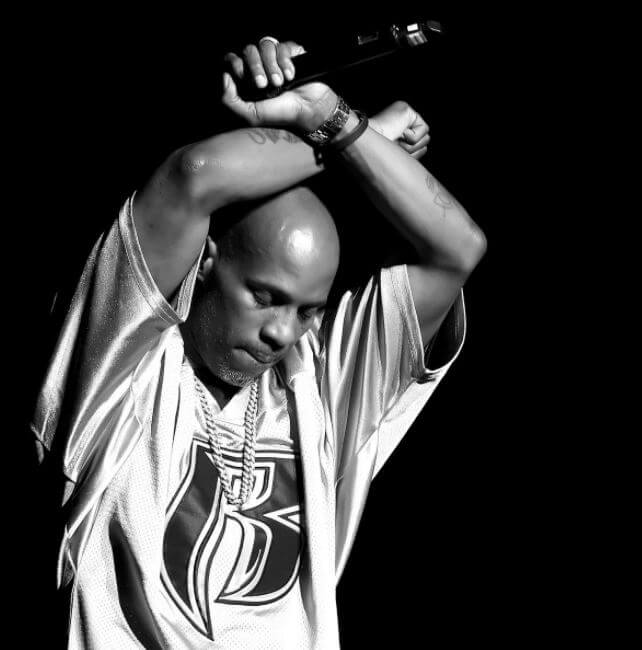 Famed hip hop scholar Dr. Regina Bradley often describes the idea of hip hop sensibilities which articulates how hip hop exists as a way of life, way of existing, and making sense of the world that goes beyond the music itself.
Famed hip hop scholar Dr. Regina Bradley often describes the idea of hip hop sensibilities which articulates how hip hop exists as a way of life, way of existing, and making sense of the world that goes beyond the music itself.
If anyone has hip hop sensibilities more than most it is none other than Earl Simmons, better known as DMX.
The news of his passing at the age of 50 due to a drug overdose and heart attack hit the hip hop world hard.
One of the reasons why this news has put an ache in our hearts was because of DMX the man, not just the entertainer.
In many ways the fact that he just by inches avoided that fatal knock on heaven’s door establishes the overall story of his life, which is, barely getting by.
He was Hip Hop’s wounded warrior, a poetic and lyrical genius whose ferocious deliveries and hardcore rhyms made him stand out above the rest because what you saw was what you got.
He had the strong storytelling skills of the Notorious B.I.G. with the aggressive mannerisms of a Tupac, Busta Rhymes, Ice Cube, and Eminem.
Soldiering his way out of a childhood of poverty, violence, crime, and abuse in Yonkers, New York to the heights of the game while never letting the best of those hip hop sensibilities be co-opted and commercialized to a certain degree is what drew legions of fans to X.
There was nothing phony about him, the good, the bad, and the ugly.
But his life and his very public struggles should remind us all about the systemic failure to address trauma, especially that of black men.
DMX came of age at height of the rapid growing inequalities at those crucial intersections of race and class along with the expanding prison industrial complex and the surge of crack cocaine ravaging communities of color.
On the micro level, he was an abandoned lost soul who was deprived of unconditional love all around him with the exception of his beloved grandmother.
He was physically abused by his mother and after a series of troubling behavior and acts of criminality, he was then dropped off at a reform school by his mother without him knowing anything about it.
X grew into a young man with searing anger and a trust of nobody and very few around him gave him that much needed shoulder to cry on, but society itself couldn’t wait to cast aside him and other young black men and they had the public policies in place to do so.
His only salvation was music and that led him down the path of achieving his own unique icon status.
But selling millions of records and adoring fans doesn’t compensate for that unconditional love he missed out on and the success can even compounded those traumas.
Furthermore, his battle with his addictions and other lifelong demons should serve as a cautionary tale about the dangers of living in a society where a toxic definition of manhood is expected.
Men are taught from an early age that in order to be accepted and validated we have to be strong, tough, dominant, intimidating and if we don’t then we are deemed weak, soft, sissy, or a wuss and none of us want to be seen in that light. We are told to not speak of our struggles and display any level of vulnerability.
X himself was caught in that trap that men are tempted to fall into and because of that he lost himself in his battles with drugs and his own personal shortcomings when it came to him being a parent and husband and also at times a productive member of society. We should put that into the context of a man who never knew any real sense of peace or contentment and was deprived of any opportunities to redefine his manhood.
To sum up, DMX’s life and death should serve as that wake up call particular for men in hip hop and beyond.
We need to reject these warped notions of manhood and create spaces of healing that can be attached to the music and culture that gives so much light.
There also needs to be a broader talk about the lifelong impact of untreated trauma in a world in which those traumas are exacerbated by institutionalized racism and classism.
The ruff ryder has been through so much and one can say that he is now at peace.
Rest in Peace X.
Latest posts by Zachary Draves (see all)
- MEGAN THEE STALLION RECEIVES MUCH NEEDED SUPPORT FROM THE SOUTHERN BLACK GIRLS & WOMEN’S CONSORTIUM — November 20, 2022
- HIP-HOP TAKES A STAND AGAINST THE OVERTURNING OF ROE V WADE — July 13, 2022
- REMEMBERING LISA LEFT EYE LOPES 20 YEARS LATER — April 25, 2022
